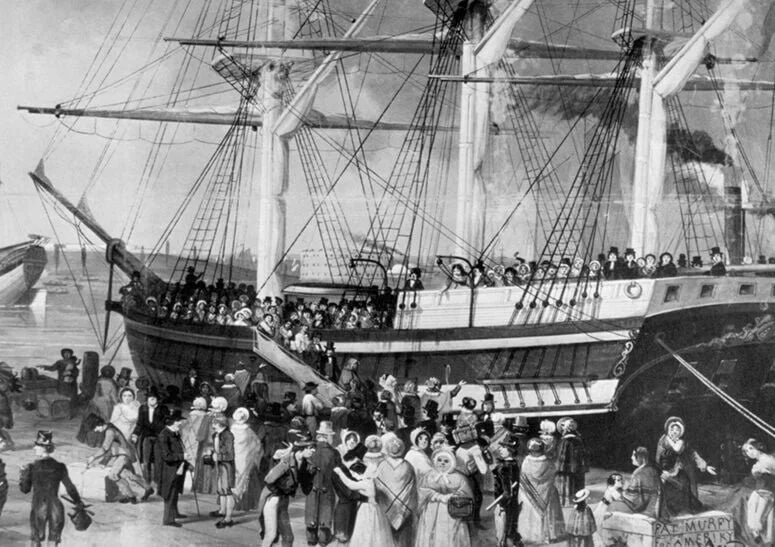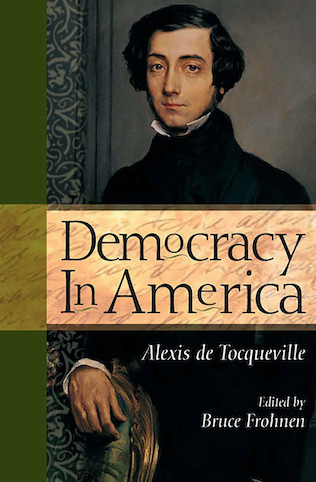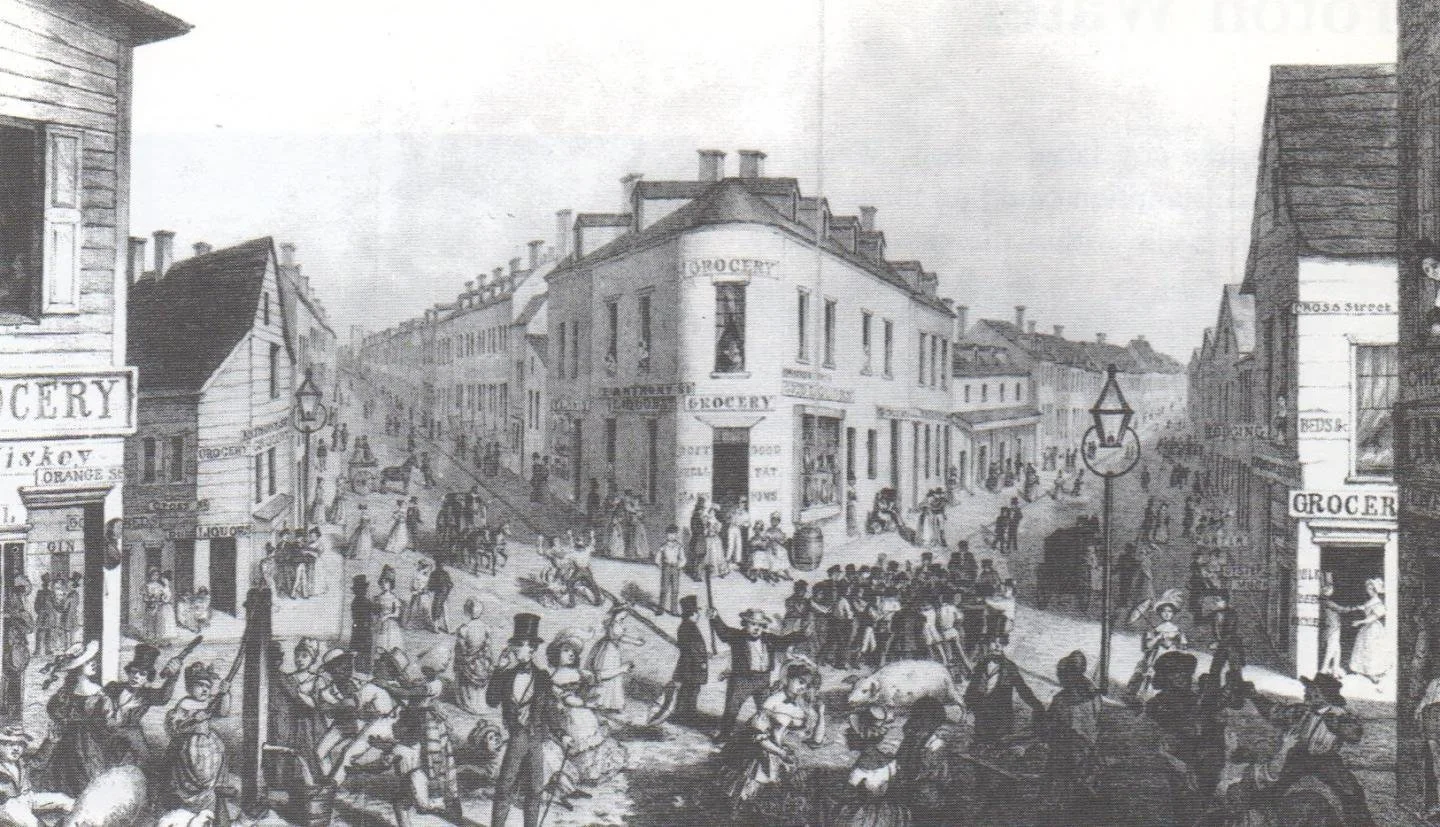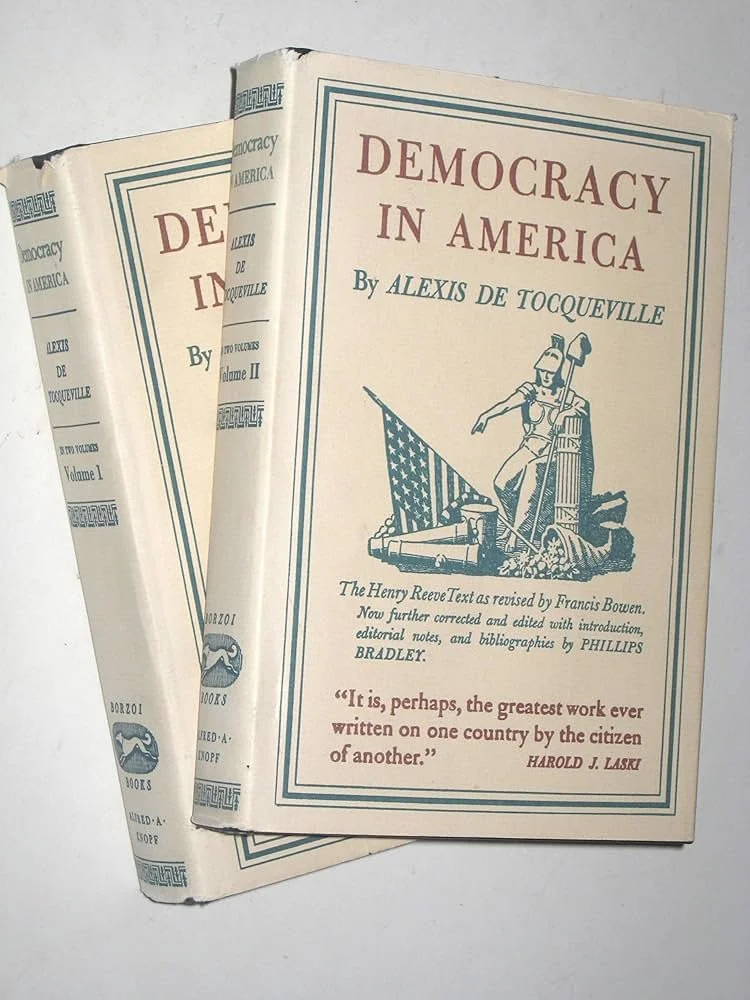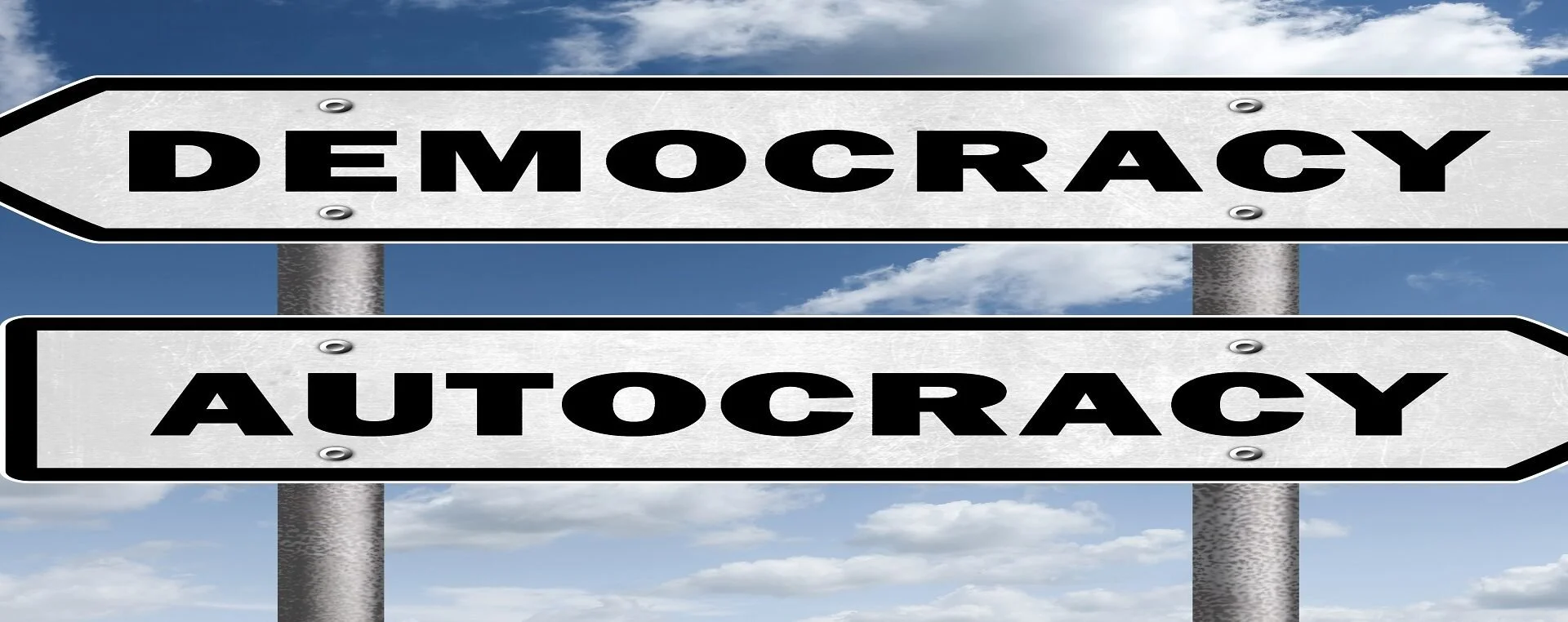TOQUEVILLE'S TAKE ON AMERICA
NEWPORT, RI, MAY 1831 — Coming down the gangplank, the two Frenchman stretch, stagger on sea legs, and survey the young country they have come to study.
One sees “a collection of little houses the size of chicken coops.” The other, in awkward English, begins to ask — Where is a proper pension? When can a steamboat take them to Manhattan? Unasked is the question that drove them here. What is democracy?
Alexis de Tocqueville was a 25-year-old aristocrat, curious about everything. Born a decade after the French Revolution descended into terror, he needed to know how this upstart America had preserved its democracy while his beloved France had traded liberté, égalité, fraternité for the guillotine that beheaded five of his family.
Tocqueville was sent to study American prisons, but “the penitentary system was a pretext. I used it as a passport that could give me access everywhere in the United States.” For nine months, he roamed America, visiting 17 of 24 states. Then, back home, he began to write.
Democracy in America is, one Harvard prof wrote, “the best book ever written on democracy and the best book ever written on America." (I agree.) Because what begins with dry details of how Americans shaped their democracy — Constitution, Congress, etc — evolves to explore how democracy shaped Americans. And though sketched in black-and-white, Tocqueville’s group portrait of Us, the People, remains sharp, focused, often uncanny.
“No sooner do you set foot upon American ground than you are stunned by a kind of tumult; a confused clamor is hard on every side, and a thousand simultaneous voices demand the satisfaction of their social wants. Everything is in motion around you.”
From Manhattan up the Hudson, from Albany to Buffalo, across Lake Erie, north through Michigan Territory, eastward across Canada, south to Philadelphia, on to Pittsburgh, down the Ohio into Kentucky, along the Mississippi. . . And everywhere, talking, meeting, observing.
Tocqueville met former presidents and politicians, clergymen and magistrates, but mostly he talked to ordinary people. And he wondered. How did they keep democracy from descending into anarchy? How long could democracy last?
And who were these new creatures called Americans? Tocqueville asks why “Americans are more addicted to practical than to theoretical science,” and “why some Americans manifest a sort of fanatical spiritualism.”
While impressed with local government, Tocqueville saw democracy preserved by “habits of the heart.” These included family, religion, small associations, and pride that bordered on obsession.
“As the American participates in all that is done in his country, he thinks himself obliged to defend whatever may be censured in it; for it is not only his country that is then attacked, it is himself. . . Nothing is more embarassing in the ordinary intercourse of life than this irritable patriotism.”
Though appalled by Americans’ ignorance of haute culture, the aristocrat admired their devotion to equality. He saw a tradeoff in the works. If you wish to “give a certain elevation of the human mind. . . avoid the government of the democracy.” But if you prefer “the promotion of general well-being. . . then equalize the conditions of man and establish democratic institutions.”
The journey had plenty of perils. Tocqueville taught his companion to swim, lest a steamboat sink. A month later, their steamboat down the Ohio splintered on rocks. Elsewhere the men endured a scorching summer and a “Russian winter” like none they’d seen in France.
Tocqueville was appalled by the treatment of native-Americans and horrified by slavery. But he loved the liberté, etc., and fell in love with American women.
“If I were asked. . . to what the singular prosperity and growing strength of that people ought mainly to be attributed, I should reply — to the superiority of their women.”
Yet democracy also created discontent — restlessness, avarice, and melancholy.
- “In the United States a man builds a house in which to spend his old age and sells it before the roof is on.”
- “I know of no country, indeed, where the love of money has taken a stronger hold on the affections of men.”
- “In America I saw the freest and most enlightened men placed in the happiest circumstances that the world affords; it seemed to me as if a cloud habitually hung upon their brow, and I thought them serious and almost sad, even in their pleasures.”
Tocqueville also warned of dangers ahead. Along with the “tyranny of the majority,” he saw democracy fostering irrational fear of disorder. ”If the slightest rumor of public commotion disturbs the petty pleasures of private life, they are aroused and alarmed by it. The fear of anarchy perpetually haunts them, and they are always ready to fling away their freedom at the first disturbance.”
Allowed to spread, such fears might lead to “soft despotism. . . a society with a network of small complicated rules, minute and uniform, through which the most original minds and the most energetic characters cannot penetrate, to rise above the crowd.”
And leadership? Did democracy bring out the best and the brightest? Au contraire. Our “love of money” diverts the most talented, “and it frequently happens that a man does not undertake to direct the fortunes of the state until he has shown himself incompetent to conduct his own.”
Home in France, Tocqueville looked back on America with eerie prescience. He foresaw a coming civil war, an industrial aristocracy, and the rise of the U.S. and Russia as world powers, i.e., the Cold War.
But he also saw that democracy, sometimes for worse but mostly for better, was the future. “Democracy!” he wrote a friend. “Don’t you recognize that these are the waters of the deluge? Let us attempt, then, to foresee the future with open eyes and steady gaze. Rather than trying to erect impotent dikes, let us seek rather to construct the sacred guardian ark that must carry the human race upon this shoreless sea.”
Onwards.
READ SIX EXCERPTS OF DEMOCRACY IN AMERICA ON THE ATTIC’S DUSTY BOOKSHELF
